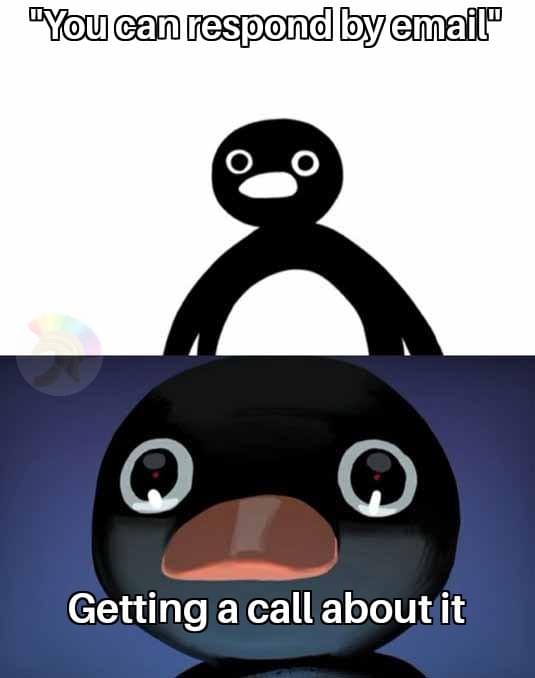
Communication Breakdown!
Nobody
Ever
Ever
Ever
Listens.
Or very probably they do and just don’t see the issue you are raising and so just carry on regardless.
I’ve learned to pay zero attention to people who smile, nod, and agree. I don't mistake easy sympathy for an understanding that requires others to change their behaviour, however slightly. I have found most people to be "sympathetic" in this way.
In communication with others I take the opportunity early on to let it be known that I do not like to be contacted by phone. In fact, I soon tell people that I can rarely be contacted by phone. I explain that I suffer from noise stress to a pathological degree and so wear earplugs and headphones around the house. That makes it unlikely that I will hear the telephone ring when people call. I explain that I tend not to switch my mobile on, except when I am expecting a call. And I explain that I do not like to be exposed to the disturbance of others. I like to preserve a certain distance.
It is the same with social media. I can’t stand the social media. It is a place of an eternally promised communication that never seems to happen. It’s like picking up your phone and waiting for someone to speak on the other end. Then you spend hour after hour waiting for a voice that never comes. I would prefer to switch the whole thing off and remove people who are a mere ephemeral but ubiquitous presence out of my life. This is not real contact and communication, merely its forever unredeemed promise.
Having explained all of the above, relating it to my autism and need to control my time and space, I make it clear to people that I can be contacted by email. Email isn’t intrusive for me. With email I am able to see and respond to messages in my own time and space. I explain myself clearly and cogently and have people agreeing and expressing sympathy. Imagine my frustration, then, when said people revert back immediately to their normal mode of operation and seek to contact me by phone. Eventually, when contact is made, they express a certain umbrage over my failure to pick up the phone or switch my mobile phone on. Every single word I have spoken to them has gone in one ear and out of the other. After their contact with me they have immediately settled back into their normal modes of communication with ‘normal’ people, which means the immediacy and availability of the phone. That immediacy and availability would burn me out in no time, so I shut it out. I give my reasons why to others, I receive their sympathy and agreement. But I do not receive their understanding and I do not receive a change in behaviour on their part. They have learned nothing, and it is I and other autistic people who have to keep bearing the strain others’ refusal to make even the slightest changes.
I was in touch for a while with someone who looked to place ‘marginalised’ people in employment. I explained all the above and more to him, and he seemed most sympathetic. The problem is that it soon became clear that he wasn’t prepared to make the slightest change in his normal mode of contacting people and communicating with people. Which meant that after meeting he would go away and work on our plans, and then ring me to arrange the next meeting. These were the days when I had a recorded message system on the telephone, so would hear his requests to give him a call. I would call, thinking this would produce a time and a date to meet. Not a bit of it! Once he had gained an assurance from me that I would be available on a certain day, he would then say ‘I’ll tell you what, I’ll ring you closer to the day to finalise the time and place to meet.’ He was clearly juggling me with his other commitments, fitting me in where and when. This was precisely the uncertainty I had told him that autistic people seek to exclude from their lives. He smiled, sympathised, and made absolutely no attempt to modify his behaviour.
That’s just once example of the many I could give. The people who listen and learn are very few and far between.
My advice is to be very careful as to the people you let into your life. I have a rule of thumb that is well-nigh impossible to apply in life. Identify the people who make you feel good, bigger, and better, and those who make you feel bad, smaller, and worse. With this rule, you know who to go to and who to exclude. You can apply the same reasoning to your main activities in life. Analyse what works for you and what doesn’t, and go where you are instincitvely at ease and going with the flow, and avoid where are we feeling the opposite.
Sounds simple. The problem comes with finding those others who make you feel good, bigger, and better and finding the places where you feel at ease. Autistic people find the very opposite to be the normal state of things.
Why this is the case is in some part explained by difficulties you have explaining to people why you avoid the phone like the plague and prefer to communicate by email.

